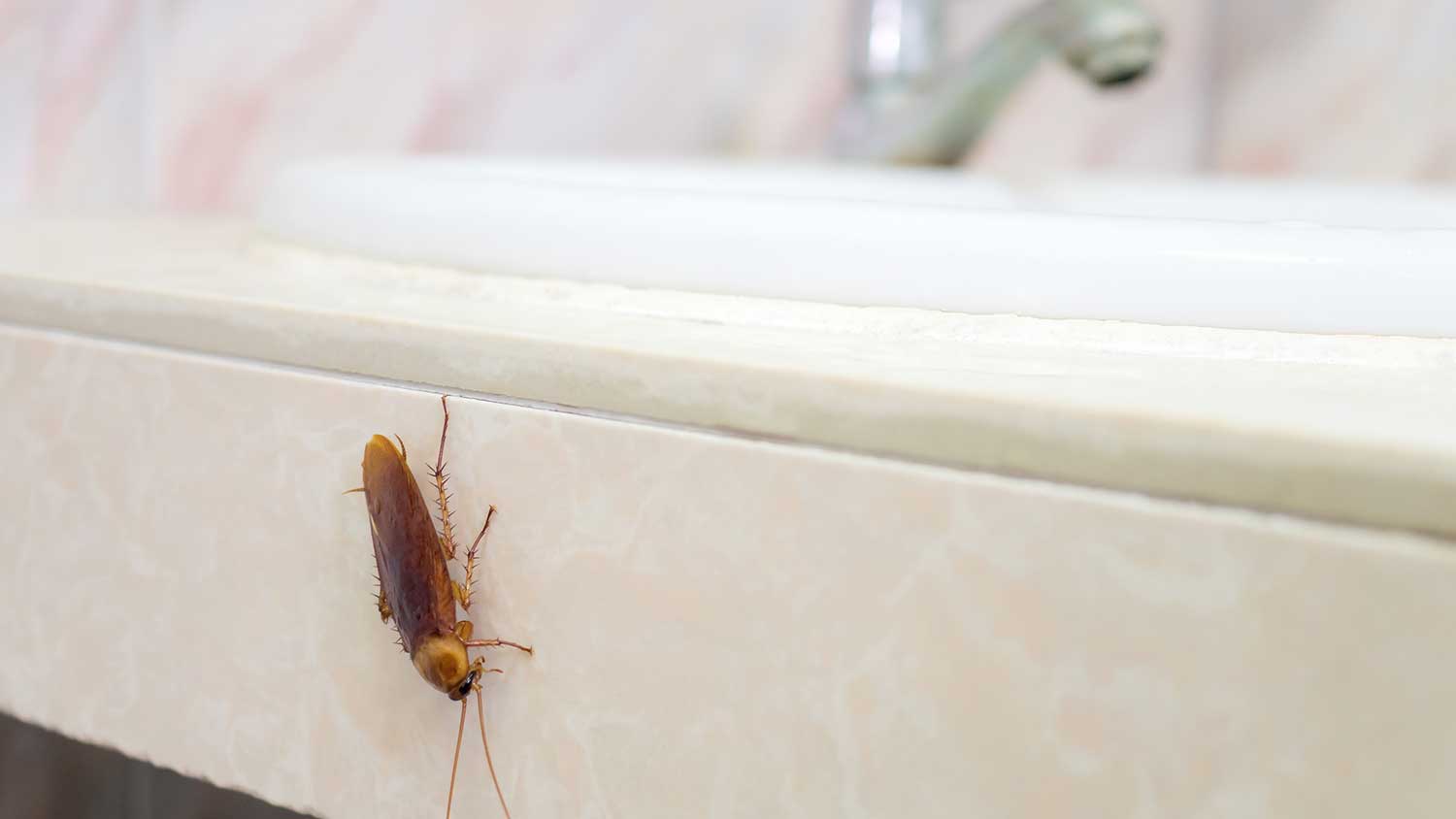
Keep your home free of termites and the damage they do. Learn more about inspections, infestations, and the average cost of termite treatments.
You’re not out of the woods just yet


Pro exterminator treatments are effective on cockroaches—but not immediately so.
If you see more roaches, it actually means the treatment is working.
Continue to be proactive while the exterminator’s treatment sets in.
No one can take control of a cockroach infestation in your home like a professional exterminator. But even with industrial-strength remedies on their side, those nasty critters won’t disappear into thin air. You likely see some trying to flee—they’re incredible survivalists, after all. And you’ll probably see some huge ones that, well, let’s just say it’s helpful to have a broom handy.
Here’s what else you should know about dealing with a cockroach infestation after a visit from the exterminator.

After applying chemical sprays or powders to your home, it will take a bit for it all to kick in. While every situation is different depending on the level of infestation—and how quickly you were able to get an exterminator in to assess the situation—here’s what you can expect after an exterminator sprays for cockroaches in your home:
Don’t ask for a refund from your local cockroach exterminator—seeing more roaches is actually a “good” thing because it means they are in exile. You might see them during the daytime and away from their typical hiding places like corners and nooks.
Cockroaches are fast critters, and some cockroaches are known to fly. If you see them crawl instead of skitter, it’s a sign the extermination treatments are taking effect.
If cockroaches have laid their eggs in your home—and there’s an excellent chance they have—there will be a new generation to contend with. While some treatments can indeed target other parts of the life cycle besides adult cockroaches, the hardiest among them will still hatch.
This is why extermination treatments are rarely a one-and-done deal. It’s not that the treatment doesn’t work, it’s that it has to work on all generations that have taken up in your household in order to finish off the infestation.
It’s tempting to want to do a deep clean of your home as soon as you’ve seen anything scurry across your floors or countertops. But to do so would be to clean away any of the powders or sprays that the exterminator applied. Your exterminator will likely tell you when it’s OK to clean areas that have been treated.
But you don’t get a reprieve from all of your household chores. It’s a good idea to clean up other areas of your home to keep cockroaches from moving to a new spot for refuge.
It’s survival of the fittest in the insect world, and while you might think that the exterminating treatment would take care of all bugs, it might not account for those just wandering in to feast on cockroach carcasses. Yes, this new round of pests might be somewhat of a “help” because they’re limiting the cockroach population, but having a bug food source only invites other bugs. Be sure to tell your exterminator if you start seeing any insects spreading their wings in your home.
Make no mistake—you’ve done a very good thing by hiring a pest control professional to help you deal with your cockroach problem. It’s well worth the cost of hiring an exterminator for your peace of mind. But there are still things you can do to help get the last of those unwanted visitors out.
Insects have a way of getting in just about anywhere they please, but you can make it harder for them by sealing up cracks and gaps in the foundation and around doors. Make sure you break down cardboard boxes and get them out to the recycling bin—insects and other pests like to hole up in boxes.
Aside from food, cockroaches need water. A leaky shower or faucet is just the thing to quench their thirst, so tighten up any loose pipes or call in a plumber to do it for you.
Once you get the all-clear from the exterminator to clean treated areas, vacuum surfaces often. You’ll want crumb-free floors to discourage insects of any kind from coming around for dinner.
It’s important to be patient in the days after an exterminator visit—and that’s understandably easier said than done. Your cockroach infestation might require additional treatments until the very last one is gone.
From average costs to expert advice, get all the answers you need to get your job done.

Keep your home free of termites and the damage they do. Learn more about inspections, infestations, and the average cost of termite treatments.

Snake removal cost comes down to the type and number of snakes you’re dealing with and where they’re located inside your home. This guide breaks it down.

If you need to get rid of bugs and pests making your home unsafe, it's time to decide if fumigation is necessary. Learn more about average fumigation costs.

While some rodent-borne illnesses are a thing of the past, rats can still cause serious illness. Read up on four rat-related diseases and how to avoid them.

Mice are unsettling intruders in your vehicle that have the potential to cause major damage over time. Learn how to keep mice out of your car.

Wondering why there are so many phorid flies in your home? Learn several ways to protect your home from this household pest.